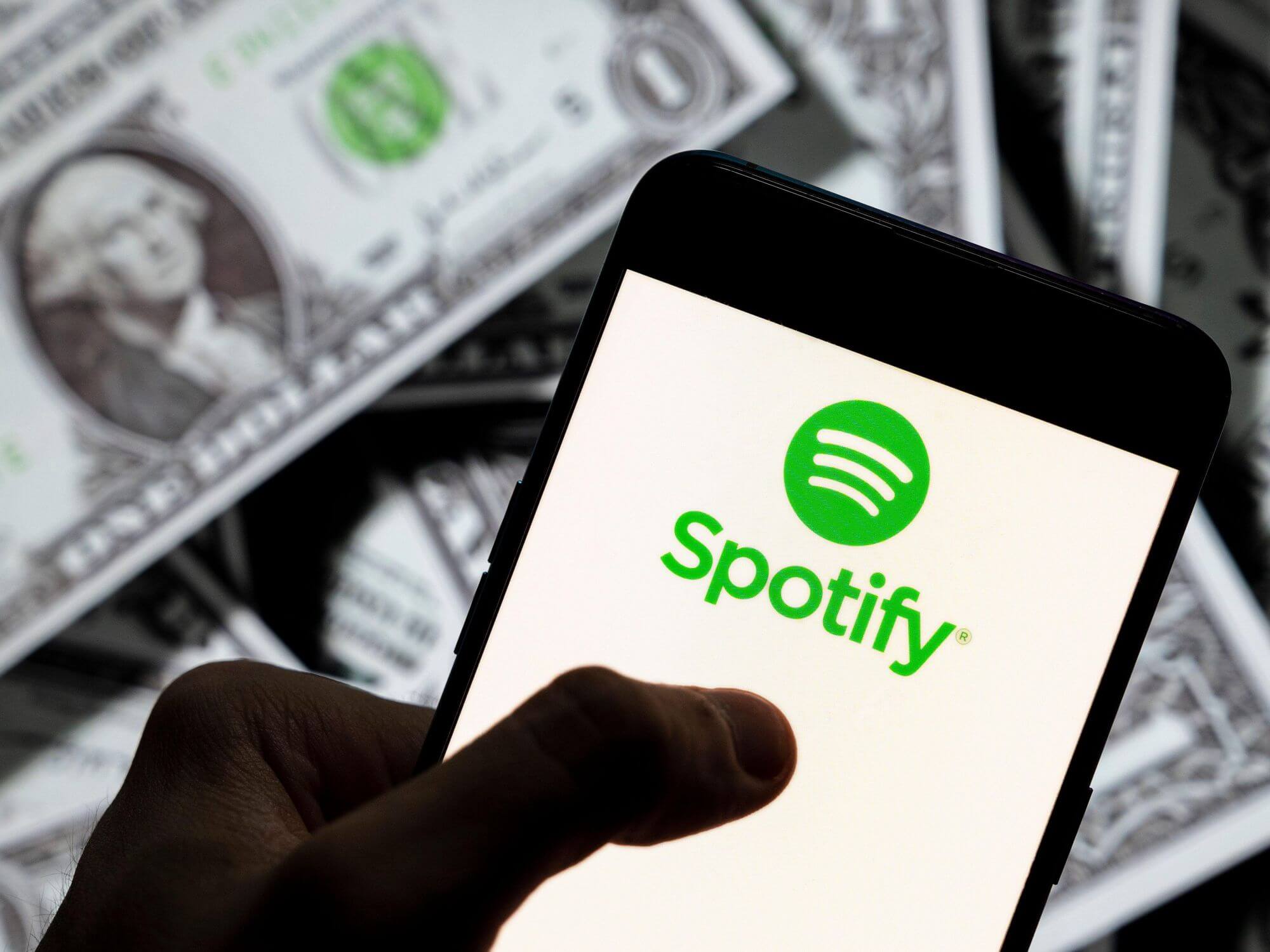Spotify’s new royalty model requires a minimum number of streams before you can get paid
The streaming giant is also introducing fines for fraudsters and directing its royalties away from ‘non-music noise tracks’.

Image: ZUMA Press, Inc. / Alamy Stock Photo
Spotify has announced significant changes to its royalty payout model in a bid to combat “drains on the royalty pool” that are said to be preventing money from going to working artists.
According to Music Business Worldwide, these changes – which take effect from early 2024 – include introducing a new threshold of minimum annual streams before a track can start generating royalties; financial penalties for music distributors and labels to deter fraudulent activity on the platform; and introducing a minimum play-time length that non-music noise tracks like ambient sounds and binaural beats must reach to generate royalties.
- READ MORE: London’s E1 club integrates cutting-edge track identification technology to boost artist earnings
While the exact number of minimum streams required isn’t specified, a source reportedly told Music Business Worldwide that the goal is to “[demonetize] a population of tracks” that earn “less than five cents per month” on average. Currently, each play on Spotify generates about USD $0.003 per month.
A quick calculation would suggest that for a track to generate $0.05 per month in royalties, it would need to be streamed 17 times a month, or around 200 plays a year. While the threshold may appear modest, these “micro-payments” quickly add up given that over 100,000 new tracks are uploaded daily to digital service providers (DSPs), says MBW.
The money saved will go back into Spotify’s ‘Streamshare’ royalty pot and be re-distributed to artists with the more popular tracks.
2024 will also see Spotify cracking down on fraud with a “per-track enforcement penalty whenever flagrant artificial streaming is detected”. For now, fraudsters only have their tracks taken down when they get caught. The move will hopefully help deter such activity from bad actors and distributors enabling those bad actors.
And finally, the third change affects makers of ‘non-music noise content’ who often game the system by splitting their ‘noise’ playlists into 31-second tracks (the minimum length to qualify for Spotify monetisation).
Upping the minimum play-time length for monetisation will thus lead to fewer of these streams, which in turn means more money in the ‘Streamshare’ system going back to music content, a source tells the publication.
Under the new plan, Spotify hopes to move USD $1 billion in royalty payments over the next few years to “legitimate” artists and rights holders.
The move comes just a month after Deezer and Universal Music announced that they will be stopping payouts for non-music content (e.g. white noise) under their new “artist-centric” model. Artists with less than 500 unique monthly listeners or fewer than 1,000 streams on Deezer will also get paid less per stream than other creators.